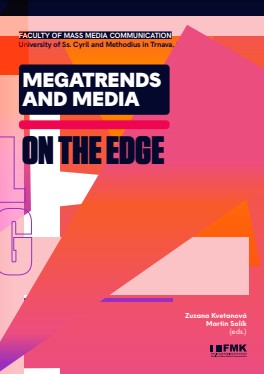Thin Lines Between Science and Gaming: On the Edge Between Being a Player and a Researcher
Thin Lines Between Science and Gaming: On the Edge Between Being a Player and a Researcher
Author(s): Tomáš FarkašSubject(s): Media studies, Aesthetics, Social Informatics, ICT Information and Communications Technologies
Published by: Univerzita sv. Cyrila a Metoda v Trnave, Fakulta masmediálnej komunikácie
Keywords: digital games; gamer; language; non-gamer; research; scientist;
Summary/Abstract: This article discusses a topic, which is not really new. There has been a debate for over 20 years whether game studies related researchers should or should not be gamers. Some theorists even claim that being an active digital games player foggs the perspective from which to look upon digital games, therefore negatively affecting the results of any research. The aim of this paper, however, is to look at this problem from a different perspective. We will argue, that if you want to truly understand digital games, you have to be a gamer - not only because otherwise you were not able to work with some of the key elements of digital games in general (such as interactivity or immersion), not be able fully to understand digital games “language”, but also because of the fact that most of the theory and books related to game studies is actually written by people, who either make games or spent considerable time of their life playing the games. Having the status of a researcher (or scientist) was always a clearly defined position. To prove our point in this article, we will also try to define this term (along with some other), showing how needless and unnecessary it was to rise this debate. We will also try to define the term language in the context of digital games and how non-gamers actually react to it.
Journal: Megatrendy a médiá
- Issue Year: 7/2020
- Issue No: 1
- Page Range: 520-528
- Page Count: 9
- Language: English

